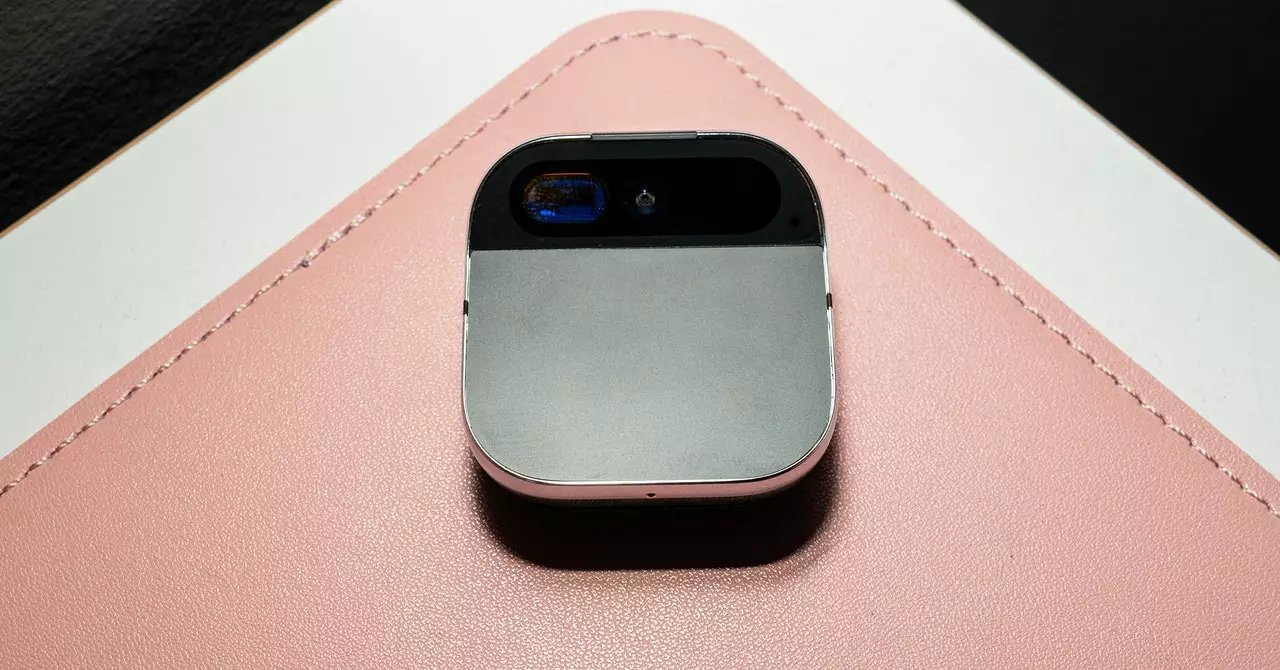The technology landscape is littered with stories of ambitious startups aiming to revolutionize the way we interact with digital devices. One such contender, Humane, introduced its Ai Pin as a breakthrough innovation, promising a smart wearable device that would perform various functions traditionally reserved for smartphones. However, the recent acquisition of Humane’s assets by HP and the dismal performance of the Ai Pin raise pressing questions about Silicon Valley’s obsession with disruptive technology. This article delves into the rise and fall of Humane, examining the crucial factors behind its rapid decline.
Humane’s journey began with fanfare as it positioned itself as the next big thing in smart devices. With founders Imran Chaudhri and Bethany Bongiorno—the duo reportedly behind key products at Apple—there was much to be excited about. The Ai Pin, a wearable device with a unique voice assistant powered by AI, seemed primed to replace smartphones with its sleek design and advanced features. The novel projection display promised an interactive experience, suggesting that the days of cumbersome physical devices were behind us.
However, upon its launch, the initial excitement quickly evaporated. The reviews that followed were overwhelmingly negative, shedding light on a multitude of issues. Hardware failures, including frequent overheating and software glitches—where the AI produced nonsensical outputs, often referred to as hallucinations—marked the Ai Pin as a disappointment. Functionality, which is critical for the acceptance of any tech product, was sorely lacking, with users highlighting that the device failed to deliver useful features.
As the dust settles, there are vital lessons to be gleaned from the Ai Pin saga. One of the most critical takeaways is the importance of user-centric design and testing. In an industry that thrives on iteration and feedback, it seems Humane may have rushed their product to market. This haste often leads to poor user experience, eroding trust. Simply having a revolutionary concept is not enough; execution and real-world performance are what ultimately satisfy consumers.
Additionally, there seems to have been a disconnect between the company’s ambitious goals and reality. Humane aimed to challenge established norms within the tech industry, but the features promised did not materialize in a form that was functional or intuitive for users. Effective technology should enhance daily life rather than complicate it, and the failure of the Ai Pin serves as a reminder that innovation without practicality is a recipe for disaster.
Following the rocky path of the Ai Pin, HP’s acquisition of Huaume’s assets for $116 million signals a strategic pivot rather than a complete embrace of the failed product line. The deal involves the transfer of patents and the company’s operating system, Cosmos, suggesting that HP sees potential in the underlying technology despite the hardware failures. This is a classic move seen when larger firms acquire startups: to extract value from innovation without inheriting the baggage of a failed product.
It remains to be seen how HP will leverage Cosmos in its existing ecosystem. The company’s statement about plans to integrate the technology into other products appears cautiously optimistic. However, whether this will translate into meaningful enhancements or simply serve as a band-aid over existing issues remains a matter of speculation.
What the Future Holds for Emerging Tech
The fall of Humane highlights a growing trend within the tech industry—an abundance of hype surrounding new innovations that often goes unfulfilled. While consumers yearn for groundbreaking products, they also increasingly demand reliability, utility, and value for their investment. Tech companies must prioritize these factors over extravagant features that fail to resonate in practical use.
As HP steers away from the immediate chaos surrounding Humane’s hardware and focuses on innovation with Cosmos, the story functions as a broader narrative for the tech landscape. Companies must harness a balanced approach, ensuring that their aspirations for groundbreaking advancements are complemented by a grounded understanding of user needs and market realities. Failure to do so risks igniting public disillusionment and potential financial ruin.
In an era of rapid technological evolution, lessons learned from the downfall of products like the Ai Pin will shape the strategies of future innovators. The race to redefine our relationship with technology has no finish line, but the importance of thoughtful design, user experience, and practical functionality remains paramount. As HP and others forge ahead, the key will be finding a sustainable path that does not sacrifice quality for the allure of novelty.


Leave a Reply
You must be logged in to post a comment.